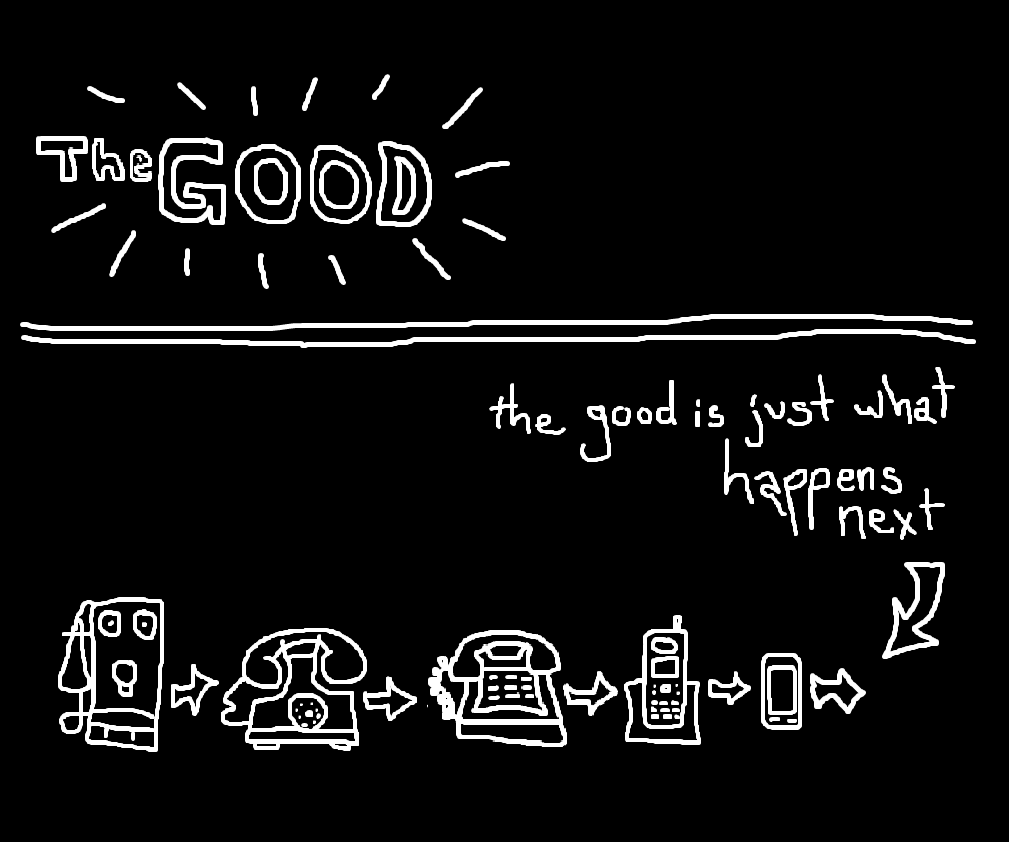
Photo by Peter Lewicki on Unsplash
This summer my wife and I saw Come From Away.
We also saw The Book of Mormon.
Completely different experiences.
Come from Away tells the story of what happened in Gander, Nova Scotia on September 11, 2001. When President Bush closed American airspace all the US-bound aircraft needed to land elsewhere. 38 big jets landed in Gander, almost doubling the population of this small Canadian town. This is a story about real people doing something beautiful in very difficult circumstances.
The Book of Mormon is about a couple of young members of The Church of Jesus Christ of Latter-day Saints going on their missions trip to Uganda. They are naive and unprepared to face the difficulties in Africa including HIV/AIDS, famine, female genital mutilation, and hostile warlords. It was considerably more offensive and blasphemous than I expected, and I regretted being there almost immediately.
Why go to The Book of Mormon? I love live theatre and I try to see the good ones. It won nine Tony Awards and was called “the best musical of the century” by the New York Times. I also consider it a bit of a responsibility to understand the culture and this play is hugely popular. And The Prince of Wales theatre was reputed to have airconditioning and it was the hottest day in London’s recorded history–we needed to go someplace cool.
As expected, the show is brilliant in so many ways–the singing, dancing, acting, and production are as awesome as any of the big blockbuster musicals. But I walked out of it–I don’t know–horrified?
It wasn’t just that it was irreverent and offensive–I understand that art will sometimes challenge our sensibilities. I don’t mind being challenged, and I certainly don’t mind it when the sensibilities of others are challenged. The play does satirize the hypocrisy, naivety and even silliness of Mormons, and by extension Christians and all religious people. Fine. But when you ridicule good things that you’ve made no attempt to understand . . . well, then you’ve gone beyond satire. I was offended by the mockery of good things. Good things that everyone knows are good. Things writers Trey Parker and Matt Stone know are good, but they deride them just the same.
And then there’s the laughter of the audience. It was a completely sold-out show. And everyone in the audience was apparently delighted by the ridicule and mockery. As I walked out of the Prince of Whales, which by the way didn’t have very good airconditioning, I was horrified by the laughter.
Four Kinds of Laughter
In the eleventh letter of C. S. Lewis’ Screwtape Letters, senior demon Screwtape instructs his nephew, junior tempter Wormwood, about how to use laughter to win his patient’s soul to what they call “our Father’s house.” According to Screwtape, there are four kinds of laughter, only one of which is truly effective for demonic purposes.
The first kind of laughter arises from Joy. Screwtape and fellow devils don’t understand this one any better than they understand music. They usually observe joyous laughter “among friends and lovers reunited on the eve of a holiday.” But they are puzzled by this kind of delight because the laughter is disproportionately bigger than the “smallest witticisms” that produce them.
Fun generates a second type of laughter. It too is useless to the demonic powers in that “it promotes charity, courage, contentment, and many other evils.”
The Joke proper, “which turns on sudden perception of incongruity” will cause the third kind of laughter.
Before we get to the fourth kind of laughter, let’s talk about the laughter of the audience at Come from Away.
Come From Away and Laughter
The audience of Come From Away laughed. We laughed often. We laughed long. We laughed hard.
We also cried, and winced, and clapped our hands with delight. The laughter occurred in the context of a wide range of human emotions.
The theme of this whole story is that life can be very difficult and what we do as individuals and communities can make a significant difference in the lives of others as they navigate life’s disappointment and challenges It shows us that by giving of ourselves, we can be profoundly blessed. The play shows us what it means to be, and experience, good neighbours.
The laughter came from joy and fun and jokes; it came exclusively from the first three of Screwtape’s three forms of laughter.
And though it all, Come From Away praises what is good.
Flippancy and The Book of Mormon
The most useful form of laughter to the minions of hell is Screwtape’s fourth–Flippancy
One reason flippancy is “the best of all” is because of its economy. “Only a clever human can make a real Joke about virtue.” Flippancy requires no cleverness, for it assumes the joke has already been made. The laughter arises not from delight or fun or an incongruity, but from the mockery and ridicule itself. Thus, the good can be laughed at as easily as can something which is actually funny.
I experienced each show with audiences of hundreds of people, but the feelings I carried for my fellow patrons through the exits were very different.
In Come From Away, we had shared in the celebration of something good–something we want more of, something we need. We shared a commitment to be better people.
The only thing we shared in The Book of Mormon was derision for someone else and a twisted delight in our own superiority.
It is as Screwtape said, the fourth kind of laughter “deadens, instead of sharpening, the intellect; and it excites no affection between those who practice it.”
[click_to_tweet tweet=”In Come From Away, we had shared in the celebration of something good–something we need. The only thing we shared in The Book of Mormon was derision for someone else and a twisted delight in our own superiority. #ComeFromAway #Book of Mormon” quote=”In Come From Away, we had shared in the celebration of something good–something we want more of, something we need. The only thing we shared in The Book of Mormon was derision for someone else and a twisted delight in our own superiority. “]




 Last week my school received a visit from the Honourable Judith Guichon, the Lieutenant Governor of British Columbia. The
Last week my school received a visit from the Honourable Judith Guichon, the Lieutenant Governor of British Columbia. The 




